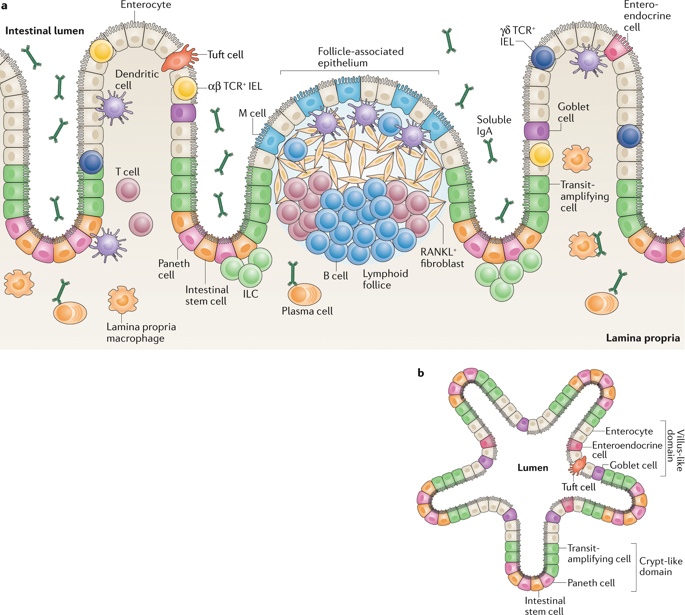当前位置:
X-MOL 学术
›
Nat. Rev. Immunol.
›
论文详情
Our official English website, www.x-mol.net, welcomes your
feedback! (Note: you will need to create a separate account there.)
Organoids in immunological research.
Nature Reviews Immunology ( IF 67.7 ) Pub Date : 2019-12-18 , DOI: 10.1038/s41577-019-0248-y Yotam E Bar-Ephraim 1 , Kai Kretzschmar 1 , Hans Clevers 1, 2
Nature Reviews Immunology ( IF 67.7 ) Pub Date : 2019-12-18 , DOI: 10.1038/s41577-019-0248-y Yotam E Bar-Ephraim 1 , Kai Kretzschmar 1 , Hans Clevers 1, 2
Affiliation

|
Much of our knowledge regarding the interactions between epithelial tissues and the immune system has been gathered from animal models and co-cultures with cell lines. However, unique features of human cells cannot be modelled in mice, and cell lines are often transformed or genetically immortalized. Organoid technology has emerged as a powerful tool to maintain epithelial cells in a near-native state. In this Review, we discuss how organoids are being used in immunological research to understand the role of epithelial cell-immune cell interactions in tissue development and homeostasis, as well as in diseases such as cancer.
中文翻译:

免疫研究中的类器官。
我们关于上皮组织与免疫系统之间相互作用的许多知识是从动物模型以及与细胞系的共培养物中获得的。然而,人类细胞的独特特征无法在小鼠中建模,并且细胞系经常被转化或遗传永生。器官样技术已成为将上皮细胞维持在近乎自然状态的强大工具。在这篇综述中,我们讨论了类器官如何在免疫学研究中使用,以了解上皮细胞-免疫细胞相互作用在组织发育和体内平衡以及诸如癌症等疾病中的作用。
更新日期:2019-12-19
中文翻译:

免疫研究中的类器官。
我们关于上皮组织与免疫系统之间相互作用的许多知识是从动物模型以及与细胞系的共培养物中获得的。然而,人类细胞的独特特征无法在小鼠中建模,并且细胞系经常被转化或遗传永生。器官样技术已成为将上皮细胞维持在近乎自然状态的强大工具。在这篇综述中,我们讨论了类器官如何在免疫学研究中使用,以了解上皮细胞-免疫细胞相互作用在组织发育和体内平衡以及诸如癌症等疾病中的作用。


















































 京公网安备 11010802027423号
京公网安备 11010802027423号